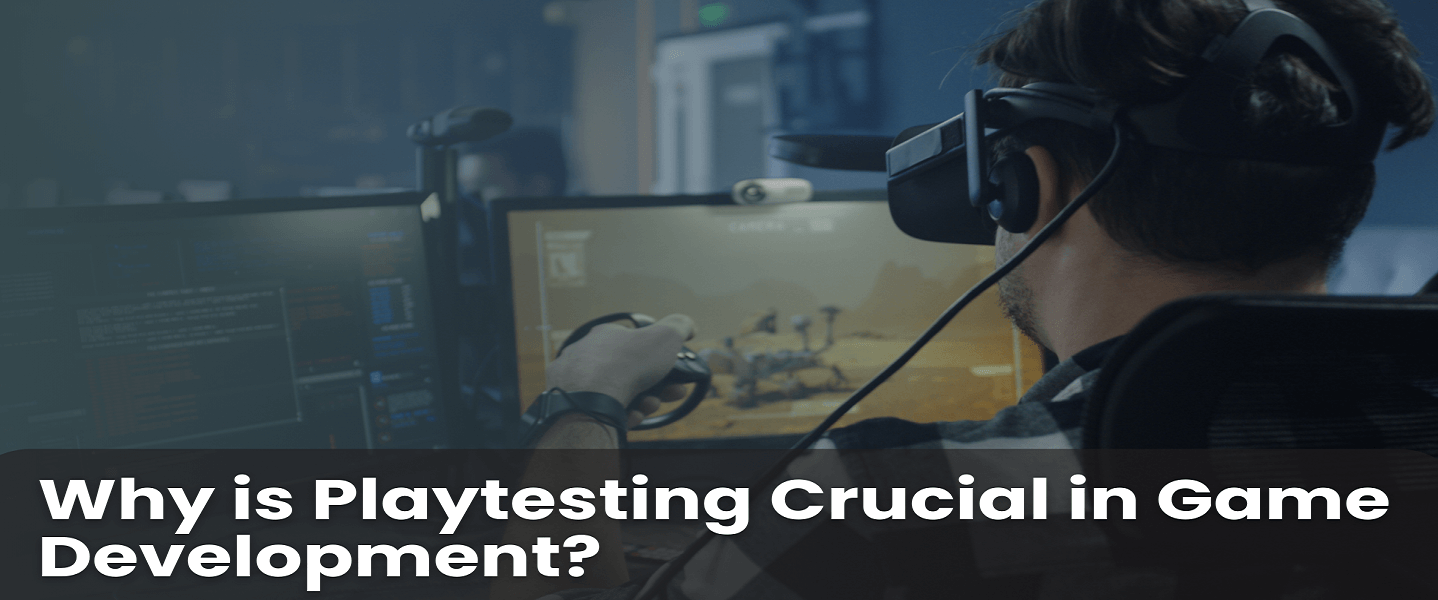Why is Playtesting Crucial in Game Development?
By
ChicMic Studios
September 1, 2023
Game development is an intricate process comprising small but significant tasks to create an immersive experience. It encounters challenges and complexities that may delay or derail the whole project. Developers rely on various methods like playtesting to avoid and overcome these challenges. It is a common and among the best ways to enhance the game quality that utilizes real-time player behavior. Developers use playtesting to test different aspects of their game and find faults to narrow down areas of improvement. Get onboard with ChicMic, and let’s understand what playtesting is and why it is vital in game development.
What is Playtesting?
Playtesting is a common testing technique that game developers use across the industry. It involves a selected group of players playing a game under development during different stages. Here are the different types of playtesting that developers rely on:
- Gross Playtesting: The testers have the task of going through the game’s functionalities and pointing out the evident issues. The developers run the game from start to finish to find the primary faults in the gameplay.
- In-House Playtesting: The studio may hire playtesters or appoint other employees to conduct game testing with an unbiased opinion. In-house testing enables the team to find more flaws and prepare the gameplay for broader testing.
- Blind Testing: The developers assign the game to players who have never played the game before. This uncovers new issues and problems previously missed for some reason.
- Final Playtesting: The final playtesting happens right before the game launch. The developers take notes of the tester’s feedback and primarily focus on the aesthetics of the game rather than on the gameplay or stage design.
Why is Playtesting Crucial?
The game developers and designers create a game with player immersiveness and new gaming experiences. Playtesting helps the developers figure out the shortcomings in the game and find ways to overcome them. Here are some of the reasons why playtesting is crucial for game development.
- Gameplay issues: As mentioned above, playtesting allows developers to find and neutralize gameplay issues. Testers often find glitches, bugs, or unintended interactions that harm the gameplay. These issues can range from graphical glitches to serious problems impacting gameplay balance, progression, or immersion. Addressing these issues early in development allows developers to create a smoother and more enjoyable gaming experience for players.
- Mechanics adjustment and balance: Playtesting is a great way to acknowledge and fine-tune gameplay mechanics. Developers can observe how playtesters interact with different aspects of the game, such as combat systems, controls, and progression mechanics. This feedback allows developers to adjust difficulty levels, speed, and mechanics to ensure that the game offers a balanced and engaging challenge.
- Fun playtesting: It allows developers to gauge players’ engagement and enjoyment. Through direct observation and feedback, developers gain insights into different game aspects that resonate with players and others that need improvement. Playtester’s reactions to the storyline, level design, and overall gameplay help developers design captivating and entertaining experiences for the players. It also allows developers to ensure the game’s objectives align with playing experiences.
- User Experiences and Accessibility: These aspects are integral to game design. Playtesting allows developers to evaluate the intuitiveness of the user interface (UI) and how accessible the navigation menus, controls, and inventory systems are. On top of this, it provides insights into the accessibility level for players with different abilities. Playtesting ensures everyone can enjoy the game regardless of their skill level or background.
- Narrative Impact and Storytelling: Games with strong storylines greatly benefit from playtesting since it enables developers to assess the narrative impact on the players. The emotional reactions to character development, plot twists, and dialogues provide valuable insights. It allows developers to measure how well the game’s story will resonate upon release. They can refine the storyline and instill immersive elements.
- Playtesting as Design Iteration: Playtesting has a considerable role in the iterative design process. As developers make adjustments based on playtest feedback, they can conduct follow-up playtests to ensure the changes are visible. Such an approach provides the game evolution aligned with players’ preferences and experiences, resulting in a more refined and polished final product.
- Real-world simulation and player behavior: Playtesting simulates real-world player behavior and responses, offering insights into how players might approach the game. Developers can observe whether players take expected paths, attempt unexpected strategies, or overlook important information. This data is vital to anticipate and accommodate different play styles and ensure an engaging experience.
- Early Detection of Design Flaws: Finding flaws during the early game development stages allows developers to acknowledge and fix them before it’s too late. Fixing these issues early on is more efficient and cost-effective than addressing them after completing the development process.
- Enhancing Player Satisfaction: Ultimately, playtesting aims to enhance player satisfaction. When developers involve players in the development process, it demonstrates a commitment to deliver an enjoyable gaming experience.
Concluding Note
Playtesting is a crucial part of the game development process. It allows developers to fix and alter the game and its attributes to ensure it matches the end user’s expectations. Hiring professionals like our team at ChicMic ensures that the complete game development cycle proceeds according to the plan. Playtest also boosts the audience’s likelihood of liking and adopting the game. Game developers must employ playtesting to continuously improve, iterate, and present a game that resonates with the audience.














